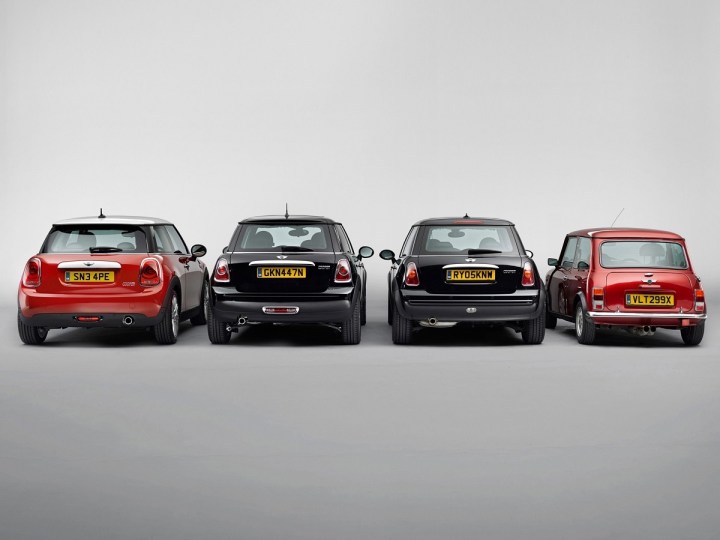
“I’m not sure who set the traditional size limits for what a MINI should be? MINI doesn’t have to mean small in size. There are brand lines set by traditionalists and historic customers and I respect that, but at the same time the world moves on,” explained Sebastian Mackensen, the car maker’s outspoken senior vice president.
Currently, the biggest member of the family is the all-new Clubman, which is built on BMW’s UKL platform. It stretches roughly 166 inches long, 72 inches wide and 57 inches tall, but the carmaker has confirmed that it hasn’t ruled out going bigger. Ultimately, the decision will depend on how buyers feel about a not-so-mini model, not on what brand purists believe a MINI should or shouldn’t be.
The next big member of the MINI lineup will be the new Countryman. While the current model competes in the urban crossover segment, the company has recently hinted that its replacement will be a true, dyed-in-the-wool off-roader that will be capable of going far off the beaten path. Bigger and more rugged, the next Countryman will share its UKL platform with the aforementioned Clubman, and it will borrow styling cues from MINI’s Dakar-winning Countryman rally car.
At the smaller end of the spectrum, MINI is believed to be developing a brand new two-seater-roadster inspired by the remarkably well received Superleggera concept. The drop-top will lose the concept’s all-electric drivetrain and instead use gasoline-burning engines borrowed from the MINI parts bin, but it will retain the show car’s sleek, aerodynamic styling.



